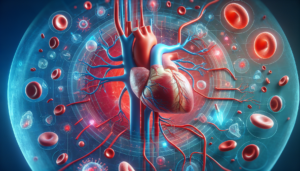Understanding Prebiotics and Probiotics: A Dynamic Duo
Understanding Prebiotics and Probiotics: A Dynamic Duo
What Are Probiotics?
Probiotics are living microorganisms that provide health benefits when consumed in adequate amounts. They are often referred to as "good" or "friendly" bacteria because they help maintain the balance of the gut microbiota, which is essential for overall health. Probiotics can be found in various fermented foods, dietary supplements, and beverages.
Types of Probiotics
-
Lactobacillus: A commonly used probiotic found in yogurt and other fermented foods. It helps in lactose digestion and supports gastrointestinal health.
-
Bifidobacterium: Often found in dairy products, it plays a crucial role in gut health, immune function, and inflammation reduction.
- Saccharomyces boulardii: A beneficial yeast used to treat diarrhea and maintain gut flora balance.
Probiotics are available in forms such as capsules, tablets, and powders, as well as in fermented food products like yogurt, kefir, sauerkraut, kimchi, and kombucha.
What Are Prebiotics?
Prebiotics are non-digestible dietary fibers and compounds that nourish the beneficial bacteria in the gut. They serve as food for probiotics, helping them thrive and multiply, thereby contributing to a healthy gut microbiome. Prebiotics are naturally present in many fruits, vegetables, and whole grains.
Types of Prebiotics
-
Inulin: Found in chicory root, garlic, onions, and asparagus, inulin promotes the growth of beneficial bacteria like Bifidobacteria.
-
Fructooligosaccharides (FOS): Present in bananas, wheat, and onions, FOS enhances the proliferation of Lactobacillus and Bifidobacterium species.
- Galactooligosaccharides (GOS): Commonly found in legumes and dairy products, GOS supports gut health by enhancing bifidobacterial populations.
Prebiotics are often incorporated into supplements and functional foods to promote gut health.
The Science Behind Prebiotics and Probiotics
The gut microbiome, comprising trillions of microorganisms, plays a critical role in digestion, metabolism, and immune function. The interplay between prebiotics and probiotics is vital for maintaining this delicate balance.
Mechanism of Action:
-
Probiotics populate the intestinal tract with beneficial bacteria, competing with harmful pathogens for resources.
- Prebiotics provide a substrate that enhances the growth and activity of probiotics, promoting a diverse gut microbiome.
Research indicates that prebiotics can improve the efficacy of probiotics, leading to better health outcomes. This synergistic relationship illustrates the importance of including both prebiotics and probiotics in a balanced diet.
Health Benefits of Probiotics
-
Digestive Health: Probiotics help restore the natural balance of gut bacteria, reducing symptoms of irritable bowel syndrome (IBS), bloating, and constipation.
-
Immune Support: By influencing the gut-associated lymphoid tissue (GALT), probiotics enhance immune responses and reduce the incidence of infections and illnesses.
-
Mental Health: Emerging research suggests a gut-brain connection, where probiotics may alleviate symptoms of anxiety and depression by modulating neurotransmitter production.
-
Weight Management: Some strains of probiotics can influence body weight and fat gain, potentially aiding in weight loss and management.
- Cardiovascular Health: Probiotics may help lower cholesterol levels, improve blood pressure, and reduce the risk of cardiovascular diseases.
Health Benefits of Prebiotics
-
Gut Health: Prebiotics improve the composition and activity of gut microflora, supporting the growth of beneficial bacteria while inhibiting pathogenic bacteria.
-
Enhanced Nutrient Absorption: Prebiotics can improve the absorption of minerals like calcium and magnesium, thus benefiting bone health.
-
Blood Sugar Regulation: Certain prebiotics can help regulate blood glucose levels and improve insulin sensitivity, potentially reducing the risk of type 2 diabetes.
-
Weight Control: By promoting satiety and reducing appetite, prebiotics may assist in weight loss and management efforts.
- Reduction of Inflammation: Prebiotics have been associated with decreased inflammatory markers, promoting overall health and reducing the risk of chronic diseases.
How to Incorporate Prebiotics and Probiotics into Your Diet
To reap the maximum benefits from prebiotics and probiotics, aim to include both in your daily diet:
Probiotics Sources
- Fermented Dairy Products: Yogurt, kefir, and certain cheeses are excellent sources of probiotics.
- Fermented Vegetables: Sauerkraut, kimchi, and pickled vegetables offer natural probiotic benefits.
- Beverages: Kombucha and water kefir are popular probiotic drinks.
Prebiotics Sources
- Fruits: Bananas, apples, and berries are rich in dietary fiber and prebiotic content.
- Vegetables: Garlic, onions, asparagus, and leeks provide a variety of prebiotic fibers.
- Whole Grains: Oats, barley, and whole wheat are significant sources of prebiotics.
A balanced approach promotes a healthy gut microbiome. Consider including both probiotics and prebiotics in your meals for optimal gut health—a bowl of yogurt topped with fruits and nuts or a smoothie blended with kefir and spinach can be a nutritious and tasty option.
The Importance of Strain Selection
Not all probiotics are created equal; different strains can confer specific health benefits. It is important to select probiotics based on individual health needs:
-
Lactobacillus rhamnosus GG: Known for its efficacy in treating gastrointestinal issues and maintaining gut health during antibiotic usage.
- Bifidobacterium animalis: Often used for its potential to enhance gut health and improve bowel regularity.
Consulting with healthcare providers can help identify the most suitable strains tailored to individual health goals or conditions.
Safety and Potential Side Effects
Probiotics and prebiotics are generally considered safe for most people. However, certain individuals may experience gastrointestinal discomfort as a side effect when first integrating them into their diet. Common symptoms include gas, bloating, and mild digestive upset. Gradual introduction can help minimize these effects.
People with compromised immune systems or severe underlying health conditions should consult a healthcare professional before starting new probiotic or prebiotic supplements.
Conclusion
While integrating prebiotics and probiotics into your lifestyle is a proactive approach to gut health, it is crucial to understand their unique roles and benefits. Emphasizing a diverse diet rich in fiber and fermented foods supports overall well-being by enhancing microbiota richness and diversity. By embracing the dynamic duo of prebiotics and probiotics, individuals can optimize their digestive health and empower their immune function, unlocking the full potential of their overall health.








